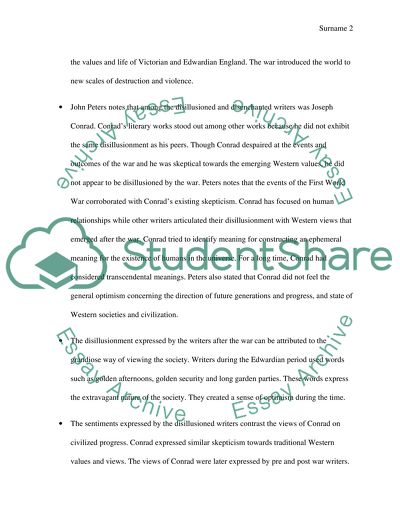Cite this document
(“Conrad's Literary Analysis Assignment Example | Topics and Well Written Essays - 2000 words”, n.d.)
Conrad's Literary Analysis Assignment Example | Topics and Well Written Essays - 2000 words. Retrieved from https://studentshare.org/literature/1629913-conrads-literary-analysis
Conrad's Literary Analysis Assignment Example | Topics and Well Written Essays - 2000 words. Retrieved from https://studentshare.org/literature/1629913-conrads-literary-analysis
(Conrad'S Literary Analysis Assignment Example | Topics and Well Written Essays - 2000 Words)
Conrad'S Literary Analysis Assignment Example | Topics and Well Written Essays - 2000 Words. https://studentshare.org/literature/1629913-conrads-literary-analysis.
Conrad'S Literary Analysis Assignment Example | Topics and Well Written Essays - 2000 Words. https://studentshare.org/literature/1629913-conrads-literary-analysis.
“Conrad'S Literary Analysis Assignment Example | Topics and Well Written Essays - 2000 Words”, n.d. https://studentshare.org/literature/1629913-conrads-literary-analysis.


